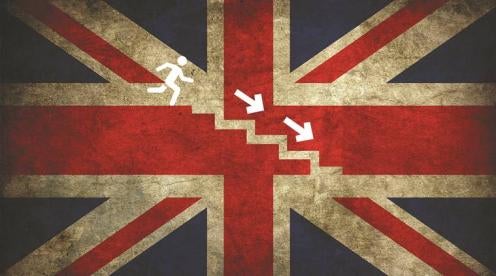Over the past months, the Government has regularly posted technical guidance notices on what it calls a “no deal” Brexit, i.e., a scenario in which the UK and the EU will not reach an agreement and the UK will become the third country on 29 March 2019. The UK Government has now published four notices addressed specifically to UK food and beverage producers outlining its plans for a no-deal Brexit. The notices emphasize that the Government believes a no-deal scenario is unlikely, and essentially summarise the Government’s policy decision on certain key issues. Key areas covered by the notices include geographical indications, food labelling and exports of food containing ingredients of animal origin. These are discussed further below.
Geographical indications (“GIs”)
The Government indicates that it is keen to protect UK products that benefit from a GI, and if no agreement is reached then it intends to set up its own GI scheme. The Government argues that it will “broadly mirror the EU regime and be no more burdensome to producers”. Businesses will have to wait until early 2019 for detailed guidance on what it will involve, but the notice confirms the following:
- The scheme will be compliant with the World Trade Organisation (“WTO”) Agreement on Trade-Related Aspects of Intellectual Property Rights (“TRIPS”).
- All 86 UK GIs currently protected under the EU scheme will automatically be given new UK GI status.
- The UK would not have to recognize EU GI status anymore.
Producers will need to adjust product packaging/ labeling to include the new UK GI logo.
It is unclear whether, following a no-deal Brexit, current UK GIs would still be protected under the EU regime. The UK Government assumes that existing UK GIs “will continue to be protected by the EU’s GI schemes”, but this is not guaranteed. If current UK GIs are not protected under the EU regime after 29 March 2019, then UK producers wishing to regain EU GI status will need to submit applications to the European Commission as third country producers. The notice also highlights that companies should consider applying for EU Collective Marks or EU Certification Marks through the EU Intellectual Property Office (“EUIPO”) or the World International Property Organisation (“WIPO”).
The Government has recently launched a consultation for its proposed GI scheme. Responses may be submitted until 1 November 2018 on the DEFRA website.
Food labeling
The Government’s no-deal Brexit notice on food labeling raises two main issues.
First, labels on products manufactured in the UK would no longer fall within the scope of “EU” as a descriptor of origin. This applies to both products sold in the UK and the EU.
Second, food products sold in the EU are required to include on the label the name and address of a responsible food business operator (“FBO”) which must be located in an EU Member State, or failing that, the details of the relevant importer. In case of a no-deal Brexit, food sold in the UK must bear the details of either a UK-based FBO or the UK importer. Similarly, food sold in the EU-27 must bear the details of an EU FBO or the relevant EU importer.
The Government intends to consult with stakeholders on the wider implications. There will be a six-month transitional period during which companies are still permitted to sell products labeled with an EU FBO. Similarly, goods already labeled and placed on the market with only an EU FBO address may be sold until stocks run out.
Foods containing products of animal origin
Currently, most foods containing products of animal origin do not require any certification to be exported from the UK to the other EU Member States, and vice versa. However, following a no-deal Brexit, UK producers wishing to export foods containing animal products to the EU would need to obtain an Export Health Certificate (“EHC”) from the Animal and Plant Health Agency (“APHA”); or in Northern Ireland, the Department of Agriculture, Environment and Rural Affairs (“DAERA”). The Government is working on simplifying the EHC application process and ensuring that there is “enough capacity amongst appropriately trained veterinarians or authorised signatories to approve the additional certificates”. Stakeholders will be informed of any changes to the existing process.
In addition, in a no-deal Brexit scenario all exports of UK food containing animal products to Member States would have to be inspected and signed off at an (approved) Border Inspection Post within the EU, in order to permit onward travel. The establishment in the UK from which the food of animal origin is prepared, obtained, or dispatched, must also be included in the list of registered establishments held by the European Commission.
A no-deal scenario, therefore, poses expensive and time-consuming regulatory hurdles for UK producers of food containing animal products. Moreover, the EU will need to grant the UK listed third country status, otherwise, no exports from the UK to the EU can take place. The UK Government intends to apply for listed third country status and is confident that the EU will grant it, but the timing for this is uncertain.
Requirements for UK businesses exporting to third countries outside the EU should not change, other than the wording of the documentation which would have to reflect the fact the UK was no longer an EU Member State. Such changes in wording would have to be agreed with the destination country. DEFRA “will work to agree updates for all existing EHCs, prioritising the countries to which the UK exports the highest volumes”.
Tariffs and customs duties
The no-deal notices do not directly address tariffs and customs issues relating to food and beverage producers, but the Government has issued general guidance about what tariffs and customs would look like in the event of a no-deal Brexit. Trade with the EU will be on WTO terms. Currently the UK is part of the EU’s WTO Schedule of Concessions annexed to the General Agreement on Trade in Goods (“GATT”). The UK and the EU reached an agreement which proposed that the UK would largely replicate the EU’s GATT Schedule, with tariff-rate quotas (“TRQs”) that largely affect agricultural and food products to be apportioned between the EU and the UK. A number of WTO Members have challenged this approach, and we can expect to see further development in this area over the coming months.
The general notice highlights that in the case of a no-deal Brexit, the UK would not be able to trade with EU Member States on more favourable terms (than the WTO Schedules) until a separate free trade agreement was implemented. The EU will, therefore, require payment of customs duty at the rate under the EU’s Common Customs Tariff (“CCT”). For EU goods imported into the UK, the UK will require a payment of customs duty at the rate set by the UK Government. HM Treasury is set to establish a new UK trade tariff.
Conclusions
The notices restate the principle of the European Union (Withdrawal) Act 2018 that any existing EU legislation will be transposed into UK domestic law on the day before Brexit. Government Ministers will then pass Statutory Instruments to address any gaps that might result from the transposition. These should hopefully bring the required clarity. Although the Government has indicated in these notices that it thinks a “no deal” scenario is unlikely, producers should ensure that they are well-prepared given the current uncertainty. In the short term, supply chain disruption is likely to be the most pressing issue for producers, but they will also need to consider how to approach issues around labeling, GIs, and manufacturing standards. Food and drink producers will need to bear in mind that the UK Government may make unilateral deviations from EU labeling rules, considering, for instance, the Government’s proposed review of allergen labeling on food products. Such unilateral deviations would lead to increased costs and be likely to give rise to legal issues in the future. Food and beverage producers not accustomed to dealing with non-EU/global tariffs will also need to find relevant expertise to help them deal with navigating the complex system of tariffs outside the EU.
Sources
“Producing food products protected by a ‘geographical indication’ if there’s no Brexit deal”
“Producing and labelling food if there’s no Brexit deal”
“Exporting animals and animal products if there’s no Brexit deal”







 i
i


